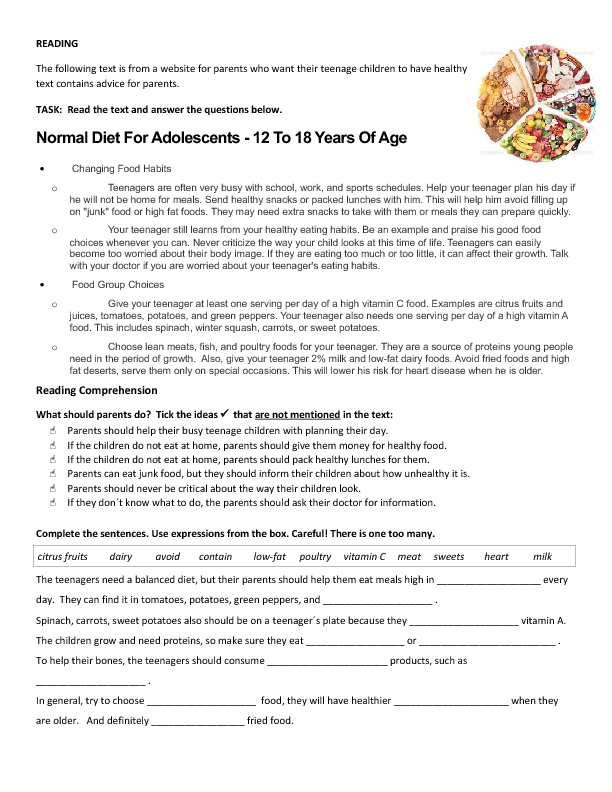
These health tips are for today: Keep your feet on the ground, use good hygiene, and share vegetables with your partner. You can find more inspiration on a trusted site. Take breaks during work and rest when you get sick. Avoid eating too much junk food. Keep your home clean and consult a trusted website for advice on health. To stay healthy, follow these daily health tips!
Taking the stairs
If you are struggling to get the recommended daily allowance of physical activity, one of the best ways to do it is by taking the stairs. Even though it may sound impossible, using the stairs can help to tone your body and lose some weight. In addition, it doesn't require you to join a gym or change your clothes. It can be done anywhere, in fact! You don't even have to spend your time searching for a staircase in your area.
Practice good hygiene
Maintain good hygiene on an everyday basis. Washing your hair and body is important to prevent the accumulation of bacteria and dead skin cells. Gum disease can be prevented by flossing daily and brushing your teeth at minimum twice daily. After touching surfaces with germs, animals, or other people, hand washing is essential. Your feet must be kept clean. Poor hygiene can lead directly to serious illness.
Your bff can make vegetables your bff
Vegetables are friends with fruits. These vegetables can be used in many different dishes, snacks, and can be added as an ingredient to various types of pastas, pizzas, and lasagna. Vegetables are also great for adding to other foods like baked beans, brown rice, and cooked quinoa. You can even combine them to make a sauce. Mix a few of them together to make your favorite dish.

Water intake in the morning
It may seem like an obvious health tip, but there are numerous benefits to drinking water first thing in the morning. Water makes up 60% of our body's weight. Water is an essential nutrient. Drinking water is extremely beneficial for your health. Here are some of these benefits. Also, you should avoid eating anything after drinking water, since your cells will need time to detoxify themselves.
Taking a walk
Take a walk every day. Even a simple walk can add a lot to your fitness level. Your fitness level will dictate the pace at which you can walk. Bonnie Stoll is a Los Angeles personal coach and co-founder the EverWalk movement. She recommends walking at a pace that takes 20 minutes per miles. Find other times in the day when you can do this if it is not possible.
Drinking apple cider vinegar
Although apple cider vinegar might seem odd as a way to start your day, it has many health benefits. It can improve insulin sensitivity and decrease blood sugar responses during meals. Even people without diabetes may find its benefits beneficial. But, before you start an apple cider vinice regimen, make sure to talk with your doctor. If you have diabetes type 2, it can help with your symptoms.
Getting enough sleep
For your health and well-being, getting enough sleep is essential. The best time to sleep depends on your age and developmental stage. Sleep is essential for memory consolidation, regulating mood, and completing daily tasks. At least seven hours should be achieved each night. It is not easy to get enough sleep. Here are some easy tips to get more sleep. To track your sleep each night, keep a sleep journal.

FAQ
Why is mental wellbeing important?
Everyone needs mental health. If you don't feel well mentally, you won't be able to do anything else. A healthy mind is vital.
When our minds aren't in the best place, our bodies start to show signs and symptoms of stress. This can lead to problems like headaches, stomach aches and backaches. It is important to take care for our bodies and minds in order to maintain a healthy balance.
These are 5 ways to improve your mental and/or emotional health.
-
Exercise - This improves brain function, and boosts energy levels.
-
Sleep – A lot of sleep is good for stress and anxiety.
-
Nutrition - Eat healthy foods such fruits and veggies to keep your body strong, energized and happy.
-
Meditation - Regular meditation reduces stress and anxiety.
-
Socialization – Spending time with our friends and families keeps us happy.
How does mental well-being affect daily life?
All people are affected by mental illness at some point in their lives. There is one major difference between people with mental illness and those without it: they don't seek out help. Talk to someone if something feels wrong. There are many treatments for depression, anxiety and stress.
Why is mental health important?
Work, play, learn, and love. Mental health refers to our overall wellbeing. Mental health refers to the many factors that affect us daily, including our physical, psychological, spiritual, social, and environmental well-being. The good news is that there are many ways to care for yourself mentally, physically, emotionally, spiritually, socially, and environmentally. You don't need to do it all at once. Start somewhere.
Understanding your current mental health status is the first step in improving it. This quiz will help you determine if you are doing enough to improve your mental health. If you're not satisfied with your results, you might consider making lifestyle changes.
Congratulations! Let's now look at what you can do to maintain or improve your mental health.
-
Get enough rest. Get enough sleep to keep your brain alert and stimulated. The American Academy of Pediatrics (AAP) recommends that you get at least 7-8 hours of sleep each night.
-
Exercise Regularly. Exercise releases endorphins, which make you happier and less likely stress. You should aim to exercise for 30 minutes five times a week.
What is Positive Psychology and Why Is It Important?
Positive psychology looks at what makes us feel better. Positive psychology helps individuals feel happier, healthier, wiser and more fulfilled through self-improvement.
There are two types of positive psychology: trait positive psychology and process positive psychology. Trait psychology studies how people naturally behave. Process positive psychology studies how we can use certain strategies to achieve specific goals.
What can I do for my mental well-being?
It is vital to maintain mental health, especially for those who are stressed from school, work, and family. Exercise regularly, eat healthy meals, get enough sleep, and spend time with loved one are all ways to improve mental health. Exercise makes us feel happier and releases endorphins. Eating healthy foods also helps our bodies function properly. Sleeping well gives us energy throughout the day. And finally, spending quality time with loved ones improves our relationships and reduces stress.
Statistics
- In any given year, an estimated 18.1% (43.6 million) of U.S. adults ages 18 years or older suffered from any mental illness, and 4.2% (9.8 million) (healthypeople.gov)
- According to the National Alliance of Mental Illness (NAMI), one in five Americans experiences mental health issues which translates to more than 40 million adults a year. (doctorondemand.com)
- Similarly, for positive mental health, there is likely to be substantial agreement about some typical components (e.g., resilience to stress) 6, and controversy about more atypical components (e.g., career consolidation). (ncbi.nlm.nih.gov)
- Appropriate nutrition and exercise are likely among the most efficacious and cost-effective positive mental health interventions. (ncbi.nlm.nih.gov)
- More than 50% will be diagnosed with a mental illness or disorder at some point in their lifetime.3 (cdc.gov)
External Links
How To
How to determine if one needs to seek help from a mental health expert
To determine whether you need to seek professional assistance, some signs should alert you to the possibility that your problem might require professional attention. It is best to see a doctor if you spot any warning signs.
-
It feels like you are losing control of your life.
-
You've been having trouble sleeping.
-
Concentration can make your mind race.
-
You find yourself thinking about suicide.
-
It is difficult to believe in your own ability to make it through.
-
It's as if life is too hard.
-
You're losing interest in the things that you once loved.
-
You have stopped eating.
-
You are now withdrawn.
-
You've tried using alcohol or drugs to deal with stress.
-
You're starting to lose close friends and family members.
-
Other physical symptoms, such as stomachaches, backaches and headaches may also be present.
If you have any of these symptoms, it is important to immediately see a doctor.